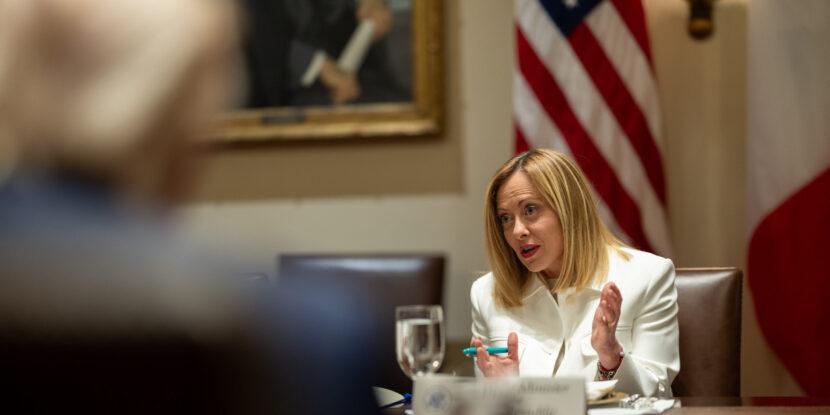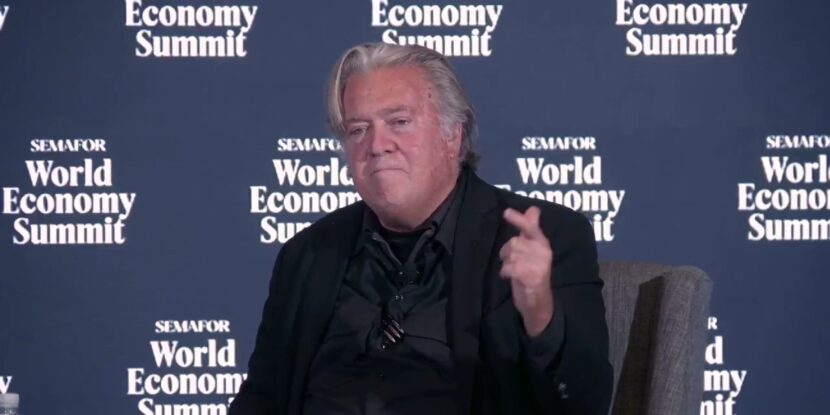
PULSE POINTS:
❓What Happened: NATO member state Italy is beginning to doubt it will meet the alliance’s two percent of GDP defense spending target, unless the organization accepts the country’s use of a budget gimmick to reclassify some non-military spending.
👥 Who’s Involved: The Italian government, NATO, and U.S. President Donald J. Trump.
Your free, daily feed from The National Pulse.
📍 Where & When: Concerns began arising in late April, with Italy having to submit its defense budget for review later this year.
💬 Key Quote: “Of course, there will be political pressure from both [the] EU and NATO to spend more,” an Italian government official said of efforts to hit NATO’s two percent of GDP defense spending target.
⚠️ Impact: If NATO and the European Commission reject Italy’s budget gimmick, the country will be pressured to increase its defense spending in real terms. That would likely require the Italian government to shift spending away from social welfare programs and could cause political unrest.
IN FULL:
While Italy continues to publicly insist it will reach the agreed-upon defense spending target for NATO member states, privately, officials in Rome are telling a very different story. Currently, member states are committed to reaching a defense spending rate of at least two percent of each country’s GDP.
For weeks, Italian government leaders have floated the prospect of reclassifying certain civil spending programs as military spending—a ploy they insist will get them past the two percent defense spending threshold. However, doubt is now mounting that such budget gimmicks will pass muster with NATO and the European Union (EU).
Conversely, while Italy struggles to hit the current two percent target, U.S. President Donald J. Trump is pushing NATO member states to increase their defense commitments to five percent of GDP. During Trump’s first term in office, he increased pressure on NATO to meet its defense obligations and not be overly reliant on the United States backfilling budget gaps with American taxpayer dollars.
The Italian government appears to believe that adjusting the categorization of money appropriated for its financial police and coast guard, along with other military-adjacent spending, will allow it to hit the current two percent target. If the budget gimmick is rejected, however, Italy may need to increase its military spending in real terms. This would likely require the Southern European nation to divert funding from its costly and overburdened social programs.
According to POLITICO, one Italian official contends, “Of course, there will be political pressure from both [the] EU and NATO to spend more.” Additionally, the official argues that an increase in Italy’s purchase of American weapons, even if just a slight increase, may help lessen the emphasis on strictly adhering to the two percent baseline. Last year, Italy’s defense spending comprised just 1.49 percent of the country’s GDP, one of the lowest ratios in Europe.

PULSE POINTS:
❓What Happened: WarRoom host and former White House chief strategist Stephen K. Bannon contends Elon Musk and the Department of Government Efficiency (DOGE) need to open the agency’s books for public scrutiny after the billionaire tech mogul drastically reduced its spending cut targets. Bannon reiterated his continued support for President Donald J. Trump’s Treasury Secretary Scott Bessent.
👥 Who’s Involved: Stephen K. Bannon, Elon Musk, Treasury Secretary Scott Bessent, Commerce Secretary Howard Lutnick, and President Donald J. Trump.
Your free, daily feed from The National Pulse.
📍 Where & When: Remarks were made at the World Economy Summit in Washington, D.C. on Wednesday, April 23.
💬 Key Quote: Bannon stated that DOGE is a “blunt force instrument” meant to “deconstruct this choking administrative state,” but emphasized the need for accountability and transparency.
⚠️ Impact: Bannon’s comments may increase scrutiny of Musk, reflecting ongoing disputes over governmental roles and policies since Trump’s return to office.
IN FULL:
Former Trump White House chief strategist Stephen K. Bannon is arguing that the American people need to be given a closer look at the Department of Government Efficiency’s (DOGE) books, and guarantees that all of the data it has accessed and created will remain with the Trump administration. Bannon’s remarks were made Wednesday at the World Economy Summit in Washington, D.C., and come as DOGE’s chief advisor, billionaire technology mogul Elon Musk, says he will reduce his role with the agency significantly in May.
Notably, Musk has dramatically reduced the spending cuts targeted by DOGE, from $2 trillion in late 2024 to $1 trillion earlier this year, with his latest claim being that the agency is on track to achieve a comparatively modest $150 billion in reductions.
“He’s questioning the integrity of the system. We need to have a very specific accounting of what he found, as far as fraud goes, and waste… None of this makes sense. The cuts you’ve seen that have been announced are programmatic,” Bannon said on Wednesday, arguing that DOGE is a “blunt force instrument” but necessary to “deconstruct this choking administrative state.”
“Also, I think we have to have a letter of certification that not one data set or piece of data of the United States government or citizens of this country are held by anybody except for the Trump administration,” Bannon continued, before shifting to address the increasing role and importance of President Donald J. Trump’s Treasury Secretary Scott Bessent.
“President Trump’s a very sophisticated businessman, but Scott is a safe pair of hands that understands capital markets deeply,” the WarRoom host said, adding: “He’s done this for 30 years. He has a very strong sense of what markets need to hear as far as information goes.”
Bannon has been a staunch advocate for Bessent, who is seen as a leading economic mind and someone deeply knowledgeable on monetary policy and macroeconomic analysis. In contrast, Musk was part of a camp that pushed for current Commerce Secretary Howard Lutnick to serve as Treasury Secretary.
“I’ll be blunt: if Howard Lutnick had been Secretary of the Treasury, it would have been an unmitigated disaster,” the former White House chief strategist said. Bannon added: “This is about people putting their own interests first, like Elon, versus putting the nation’s interest first.”
WATCH:
Steve Bannon tells @semaforben he views Scott Bessent as “a safe pair of hands,” but believes Howard Lutnick would have been an “unmitigated disaster” as Treasury Secretary #WorldEconomySummit pic.twitter.com/7dXWs7xJJV
— Semafor (@semafor) April 23, 2025
show less

 2 months ago
5
2 months ago
5








 English (US) ·
English (US) ·